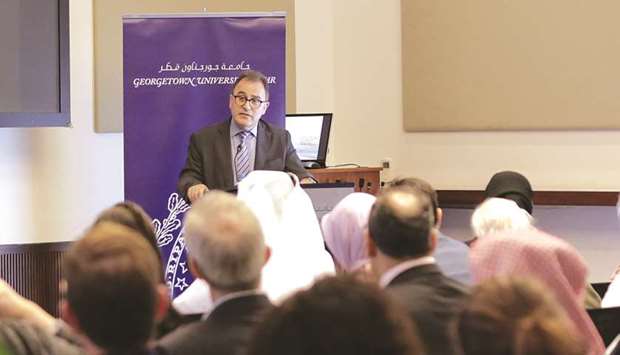Georgetown University in Qatar (GU-Q) recently brought together leading scholars involved in research on Islamic intellectual thought between the 16th and 18th centuries at its annual faculty research conference in Doha.
Held under the theme “Transformations and Continuities in Islamic Intellectual Thought,” the two-day conference focused on the period of history when the Muslim world had separated into three distinct empires: the Safavids, the Ottomans and the Mughals.
The panel of multidisciplinary experts presented research on topics in social and intellectual history, law and politics, reason and ethics, and culture and literature in the Muslim world across these empires. Leading universities from Qatar, the USA, UK, Germany, France, the Netherlands, India, Turkey, Finland, and Sri Lanka took part, along with the British Library.
In his opening remarks at the conference, the dean of GU-Q, Dr Ahmad Dallal described the literature produced in this time period of Islamic history as “one of the most important legacies of Islamic culture,” challenging widespread beliefs that the era was one of intellectual stagnation.
“Today’s conference has the distinct advantage of providing a comparative approach that questions the notion of decline not only by examining it in different periods and contexts, but also by doing so through the prism of several intellectual and cultural traditions,” he said.
The dean, who is also a scholar in Islamic Studies, presented supporting evidence that the post classical period has a “vitality that, at times, is comparable to, and even supersedes in its scope, intensity and quality, the cultural activities of the classical period.”
Conference chair and assistant professor at GU-Q, Dr Sohaira Siddiqui, noted that while the conference brings together scholars from all disciplinary fields in Islamic thought and participants from different parts of the world. “What connects everyone is a shared interest in questions of historical change, intellectual and cultural production, and scholarly interconnections. We hope that the presentations and conversations stimulate and generate long-term scholarly engagement and collaboration.”

Dr Ahmad Dallal delivering the opening remarks.
